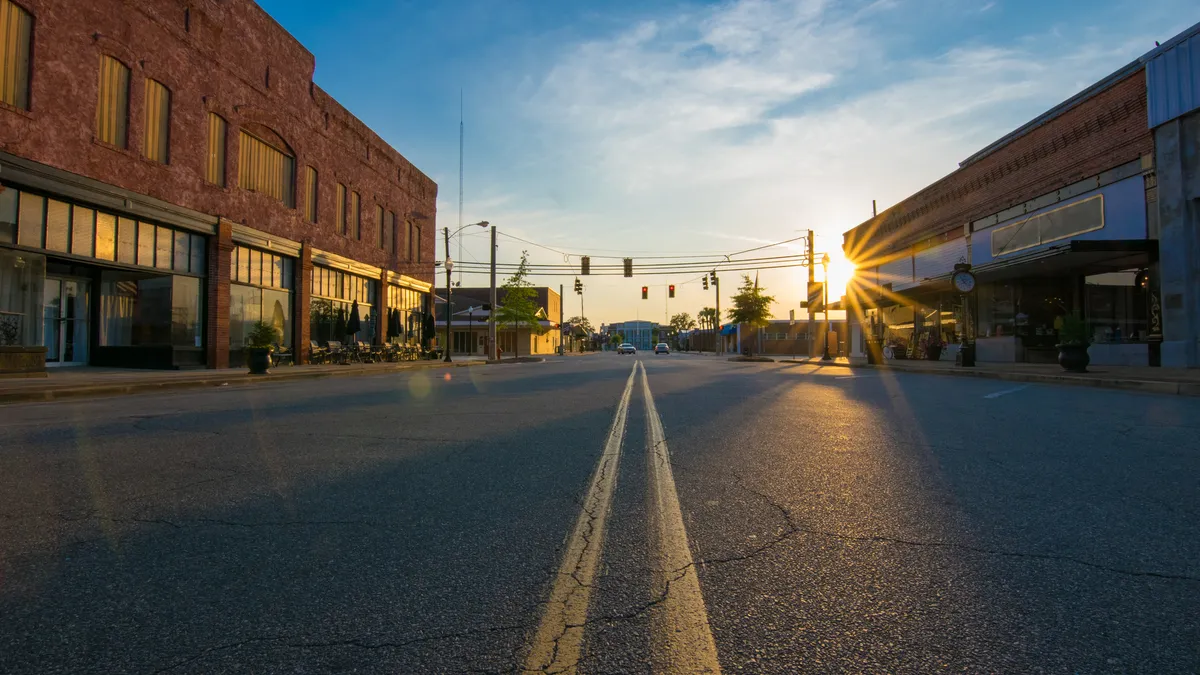The Small Business Administration's small-business relief program reached its $350 billion limit Thursday morning, according the agency's website, which said it was unable to accept new applications "based on available appropriations funding."
Since the first-come, first-served Paycheck Protection Program’s (PPP) rocky launch this month, banks have been scrambling to ensure small businesses are able to tap the funds meant to aid companies struggling to stay afloat amid the coronavirus pandemic.
The SBA said it had approved more than 1.5 million loans totaling $324 billion as of Wednesday evening and, according to the The Wall Street Journal, some in the agency predicted the funds would be depleted as early as the end of the day.
"The funds, absolutely, will run out before we're able to serve our customers, and that's despite our having gotten an early start and, I think, done a good job of getting things processed quickly," Brian Hagan, Florida market president for First American Bank, a $5 billion-asset institution that operates in Illinois, Wisconsin and South Florida, told Banking Dive on Wednesday.
The PPP, part of the $2.2 trillion coronavirus stimulus package, offers loans of as much as $10 million with payments deferred for six months.
The loans don't require collateral and will be forgiven if businesses retain and rehire employees, using the funds for payroll costs, mortgage interest, and rent and utility payments for two months.
First American Bank took in more than 2,000 initial applications on April 3, when the SBA first opened the application process, Hagan said. As of Wednesday, the SBA has approved $301 million worth of loans, and the bank has funded $83 million into customers' accounts, he added.
"There is a tremendous demand and, in fact, some of the applicants are independent contractors, for example, who were only able to start applying this past Friday," Hagan said. "We are certain that the funding will not be sufficient for all the demand as it stands."
The average amount for the bank's first 100 loans was around $700,000, Hagan said. "As we look at the next batch that we're funding, the averages look closer to about $250,000."
The bank is only processing loans for existing customers and has a standby list for non-clients. That list reached 500 in just three days.
"We’re focused on serving our customers, since we expect the funding to be limited," Hagan said.
To meet the demand, Hagan said the bank has had to allocate resources to the PPP from virtually every area of the bank.
"We've moved people on our legal team, so paralegals and compliance staff that may have been working in other areas are now doing documentation," he said. "The same thing goes for loan operations. If you were working in retail or some other area, you're now helping out on the commercial volume because the PPP program has so much volume.
“Everybody's all hands on deck," Hagan added. "We needed everybody to pull together and focus on this nonstop for the past couple of weeks."
Hagan said the bank is hopeful Congress will pass an additional $250 billion in funding for small businesses.
However, Republican and Democratic lawmakers are at an impasse over how they want the additional funds allocated. Last week, Democrats blocked an effort to unanimously pass the $250 billion bill.
Democrats said they want an additional $100 billion for hospitals and $150 billion for state and local governments on top of the Republican-proposed $250 billion. Republicans said the funds should be limited to small businesses.
"As has been clear since last week, Republicans' bill, which fails to address these critical issues cannot get unanimous consent in the House," House Speaker Nancy Pelosi, D-CA, said in a statement Wednesday, addressing reports that the PPP would be run out by the end of the day.
Congress extended its recess until May 4 in an effort to practice social distancing, and it's not clear whether the two parties will come to a consensus on the bill before the end of the week. Republicans have not ruled out trying to get the bill passed Thursday, according to Politico.
Meanwhile, small businesses remain desperate for additional funding amid the pandemic, said Brock Blake, founder and CEO of small-business lending marketplace Lendio.
"Business owners are going to go through that $350 billion pretty quickly," he told Banking Dive. "And business owners have so much anxiety right now around missing out."













